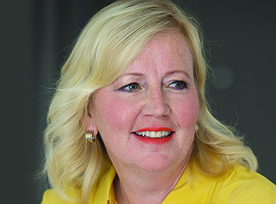Legal Services
Divorce and Wills
Whilst you will no doubt be aware of the impact of divorce on your current financial situation, have you considered how divorce affects your Will and future estate planning?
Previous Wills are generally revoked by marriage and people often assume that divorce will also revoke a previous Will.
This is not the case; divorce does not revoke a Will and your current Will remains valid.
In the event of divorce, your former partner is treated as having died on the date that your divorce becomes absolute.
If you have appointed your former partner to administer your estate, that appointment will fail.
Any gifts left to your former partner will also fail. If you have not made substitutionary provisions in your Will, your estate:
- could be administered by extended members of your family, creditors or third parties that you may not even know;
- will be inherited in accordance with the rules of intestacy which could have unforeseen consequences.
Essentially, your estate will be inherited by your extended family and, if you do not have any family, will revert to the Crown.
With such serious consequences, we usually suggest that your Will is updated during the divorce proceedings in order to reflect your future needs and wishes.
About Louise
I work in the Family Wealth team of Freeths LLP and advise on a variety of private wealth matters including the drafting of Wills, setting up trusts and drafting and registering powers of attorney.
I am passionate about my work and sensitive to the needs and feelings of my clients.
I have been recognised for my work with charities and vulnerable clients, including the preparation of lasting powers of attorney, trusts for disabled beneficiaries and statutory wills for approval by the Court of Protection.
I am a fully qualified member of STEP, the world’s leading organisation for private wealth professionals, and am a member of the Management Committees for its special interest groups for digital estate planning and mental capacity. Described as “very knowledgeable, patient, caring and flexible” and recognised as a next generation lawyer in the Legal 500 2017 and 2019 directories.
How I can help
- Wills for clients with complex and/or high-net-worth estates
- Incorporating trusts within Wills
- The creation of lifetime gifts and trusts
- Post-death estate planning, including deeds of variation and the restructuring of Will trusts for inheritance tax purposes
- The tax consequences of estate planning and trusts
- The availability of business property relief, agricultural property relief and other forms of tax planning for individuals, estates and trusts
- Setting up lifetime and complementary trusts in Wills to make provision for second spouses and children from previous marriages/relationships
- Lifetime trusts for disabled children and assisting with financial planning
What to consider
- Who should act as your executors: these are people who will administer your estate, take care of your funeral arrangements and report to H M Revenue & Customs on whether any inheritance tax is payable on your death.
- Who should act as trustees for your children: these are people who will manage your estate for the benefit of your children or, indeed, any adult who may have a disability.
- What age you would like your children to inherit.
- The arrangements for any new partner. If you are not married, they will not automatically inherit any of your estate and inheritance tax will be payable on any gifts left to them/trusts created for them. You may wish to consider giving them the right to live in your property but leaving your property to your own children later down the line.
- How you would like your personal items (called “chattels”) to be inherited.
- Whether inheritance tax is payable and if so, how provision for that will be made. There are two main allowances to which your estate may be entitled: the “nil rate band allowance” which is currently £325,000 and the “residence nil rate band allowance” which applies when you leave an interest in your home to your descendants and is currently set out £175,000. After applying these allowances, any excess value within your estate is taxed at 40% and so provision may need to be made for payment of this liability on your death.
Testimonial
- Client testimonial: “You’re the only legal professional I’ve found that really understands the situation and has empathy so I do value your advice above others”
Prices
- Email Louise for prices
Contact Details
- Telephone: 01865 781105
- Email: louise.lewis@freeths.co.uk
- Website: www.freeths.co.uk











